MOVIE PREVIEW – Oscar® winner JORDAN PEELE disrupted and redefined modern horror with Get Out in 2017 and then Us in 2019. Now, he reimagines the summer movie with the expansive new horror epic, Nope, a dark pop nightmare of uncanny science fiction and complex social thriller that unpacks the seeds of violence, risk and opportunism that are inseparable from the romanticized history of the American West … and from show business itself.
The film reunites Peele with Oscar® winner DANIEL KALUUYA (Get Out, Judas and the Black Messiah), who is joined by KEKE PALMER (Hustlers, Alice) and Oscar® nominee STEVEN YEUN (Minari, Okja) as residents in a lonely gulch of inland California who bear witness to an uncanny and chilling discovery.
Nope is situated just outside of Los Angeles, in Southern California’s arid and rambling Santa Clarita Valley, where siblings OJ Haywood (Daniel Kaluuya) and Emerald Haywood (Keke Palmer), have inherited a horse ranch from their industry-legend father, Otis Haywood Sr. (Emmy winner KEITH DAVID; 21 Bridges, Crash), carrying the torch of his craft as animal wranglers for film and television. It’s a tough business, and despite their skills and the artistry of their profession, OJ and Emerald face financial challenges and the heartbreak inherent to a trade where livestock is the talent. Adjacent to the Haywood ranch sits Jupiter’s Claim, a family-fun theme park and petting zoo predicated on the white-washed history and aesthetics of the California Gold Rush, owned and operated with evangelical pride by Ricky “Jupe” Park (Steven Yeun), a former child star who is saddled with a tabloid-tragic backstory that he has spent a lifetime trying to escape.
OJ and Emerald begin observing unexplained phenomena on their vast ranch that leads them down an obsessive rabbit hole—plotting attempts to capture the mystery on camera. The hijinks of their quest for documentation, through increasingly elaborate and dangerous set-ups, puts at risk the only thing they truly have: the hard-earned business of their late John Henry-esque father, who has left them in his long shadow. Things escalate, as the siblings enlist the expert help of Fry’s Electronics store employee Angel Torres (BRANDON PEREA; The OA, American Insurrection), and acclaimed cinematographer Antlers Holst (MICHAEL WINCOTT; Hitchcock, Westworld), who is on the cusp of retirement. As their efforts, and hubris, cross a point-of-no-return, ratcheting the stakes to terrifying consequences, our heroes are drawn straight into the eye of an irreversible storm. The result is an expansive horror-spectacle with an intimate and emotionally complex core.
Nope is written, produced and directed by JORDAN PEELE and produced by IAN COOPER p.g.a. (Us, Candyman) for Monkeypaw Productions. The film’s executive producers are ROBERT GRAF (Bombshell, No Country for Old Men, True Grit) and WIN ROSENFELD (Hunters, BlacKkKlansman).
The film co-stars WRENN SCHMIDT (For All Mankind) and BARBIE FERREIRA (Euphoria), TERRY NOTARY (The Square), DEVON GRAYE (I Don’t Feel at Home in this World Anymore), Daytime Emmy winner DONNA MILLS (Knots Landing), OSGOOD PERKINS (director Gretel & Hansel) and EDDIE JEMISON (Ocean’s 11 franchise).
Nope’s artistic team includes Oscar®-nominated Director of Photography HOYTE VAN HOYTEMA asc, fsf, nsc (Dunkirk, Let the Right One In); Production Designer RUTH DE JONG (Twin Peaks, Manchester by the Sea), Oscar®-winning Visual Effects Supervisor GUILLAUME ROCHERON (1917, Life of Pi), and editor NICHOLAS MONSOUR (Us, Action Point). The costumes are designed by ALEX BOVAIRD (The White Lotus, American Honey), the music is by MICHAEL ABELS (Bad Education, Get Out), and the casting is by Emmy Award winner CARMEN CUBA, csa (The Power of the Dog, Stranger Things). Nope will be released by Universal Pictures worldwide.
The backstory
In the wake of the success of Get Out and Us, both of which disrupted and redefined the horror genre in singular ways, Jordan Peele was eager to expand his cinematic canvas, embrace a challenge unlike any in his filmmaking career so far and tackle the granddaddy of genre movies: the summer event film. “Nope is of a bigger scope than any story I’ve ever tried to tell,” Jordan Peele says. “And from a filmmaking perspective, the process has been an adventure unto itself. Every single department has taken huge risks and committed full tilt. I tried to write a script for a movie that I didn’t know how to pull off. And then I assembled a team to help me pull it off.”
As he began to explore options, one particular subgenre of summer event films felt particularly ripe for reinvention. “I had this idea of making the Great American UFO movie — a flying saucer horror film,” Peele says. “And not only a flying saucer horror film, but really, the quintessential one. It’s a difficult genre and hard to pull off because it’s got this huge canvas that you have to take into account — the sky. Close Encounters of the Third Kind is a huge influence of mine in its scope and in its vision, but more than anything, in Steven Spielberg’s ability to make us feel like we’re in the presence of something from another world. That immersive experience was something I desperately wanted to chase as well. Within that genre, though, we often apply all these wonderful qualities to some advanced alien civilization. But what if the truth is a lot simpler and darker than we even could ever imagine?”
A true Peele-movie
As with all Jordan Peele films, whatever you think Nope is going to be as you enter the theater, you’re in for more than a few surprises. “The reason that we’re so withholding in our trailers and in our advertising materials is that we all secretly know that the most fun to be had is coming into something with less information,” producer Ian Cooper says. “Jordan designs movies that are the maximal fun if you’re not quite sure what you’re getting into.”
You’ll definitely never look at the sky the same way again. “Obviously, this is a horror movie, but it has a science-fictional conceit,” Cooper says. “It was really important for us to feel the balance and ensure that it felt more horror than science fiction. Early on, Jordan was saying, ‘I’m hopeful that people will look at clouds after this movie the way they looked at the surface of the ocean in Jaws.’ Even during filming, when we would have real clouds in the sky, you could imagine how unnerving it would be to have that phobia.”
As with all Peele films, Nope delves into deeper themes and ideas as it thrills, terrifies and entertains. The film is both a spectacle itself, and an examination of how spectacle shapes our culture and our ideas of ourselves. When the film’s central characters encounter this unexplained phenomenon in the skies around Haywood Ranch, each of them, for different reasons and different ways, is drawn to the pursuit of documenting this anomaly. “The DNA of the movie has this big question about the human addiction to spectacle,” Peele says. “And what happens when money becomes involved is that there’s this massive exploitation of what should be pure and what should be natural.”
Explicit theme
The film’s initial title, in fact, made the theme explicit. “The title that Jordan was originally thinking of was ‘Little Green Men,’ so even from the earliest conversations, there was an intertwining between the idea of the quest for fame and fortune, and the quest for documenting existence of life beyond Earth,” Cooper says. “The double entendre of ‘Little Green Men’ was a way in which you could talk about dollar bills as well as talk about aliens and the unknown.”
Nope is also an exploration and critique of filmmaking and film industry itself. “I set out to design something that criticized what we do as much as it honors it,” Peele says. It reveals the lives of the skilled, behind-the-scenes artists (known as “below-the-line” crew in industry parlance)—the animal wranglers, cinematographers, technology experts—who create the indelible images we see on screen but who are never seen themselves. And it shines a light on the realities of discarded actors, particularly child actors, who are abandoned by the industry once they cease to be adorable bankable assets. “Nope is a movie about the quest both to be seen and — to use that Millennial expression — ‘Pics or it never happened’,” Cooper says. “It’s also an unpacking of the existential crisis of being a below-the-line person in the dichotomy in Hollywood—basically being visible or not visible—yet both integral and complicit in creating the spectacle on screen.”
Loop of cards
That idea is encapsulated in a famous series of 16 sequential photographs depicting a Black jockey on a horse. Created by Eadweard Muybridge in 1887, the loop of cards, known as Animal Locomotion, Plate 626, is one of the earliest examples of chronophotography, an early method to photographically record the passing of time, and it created the foundation for what would become motion pictures and the bedrock of the entire film industry. These photographs are in the permanent collection at the National Gallery of Art in Washington, D.C. The name of the horse and the name of its owner are recorded. The name of the Black jockey, however, is not, and is lost to history. “Ian Cooper was the one who gave me the book on Eadweard Muybridge,” Peele says. “And that was really the ‘in’ to uncover some of the commentary, the exploration of the media, of Hollywood and the film industry itself — and the exploitation that is kind of inherent in this industry and always has been.”
The symbolism of those images is hard to shake. “Jordan was drawn to the idea that the original movie star — the actor, stuntman and animal wrangler — is rolled up all in one into the Eadweard Muybridge Jockey; an unknown Black man in profile riding in perpetuity,” Cooper says.
In the film, siblings OJ and Emerald Haywood are the descendants and inheritors of that legacy on both a literal and metaphorical level. “In its core, this movie is about a brother and sister, and about their ability to go from a place of not connecting to a place of understanding each other and acknowledging that they have always sort of seen each other,” Peele says. “The film is about spectacle and our addiction to spectacle, and the fact that we’re being drawn to it. But it’s also about our inner need to be seen, to be recognized for who we are and what we are.”
Duality of the industry
And, in the personalities, OJ and Emerald reflect the duality of the industry and within Peele himself. OJ prefers the peace and solitude of anonymity and derives pleasure from his work. Emerald seeks the attention and the light. “In many ways, OJ and Emerald represent two different sides of my personality,” Peele says. “On one hand, I like my privacy. The idea of a bunch of people turning to look at me all at once is terrifying to me, as it is to most people. At the same time, I went into this career that puts me right in front of everybody. So, this crazy juxtaposition in my life is kind of what these characters are about.”
It’s also worth noting that Nope, just by its existence, is a kind of commentary on the anonymity of that Black jockey in 1887 and the increasingly visibility of Black, Indigenous and People of Color both in front of and behind the camera. “This movie’s not about race per se, although race does interact with this idea of spectacle-ization and exploitation,” Peele says. “But the movie, in itself, is meant to be a film that couldn’t be made five years ago, in that it’s an original piece of content, starring people of color, directed by a person of color, with a big budget and some crazy shit in it. That movie’s not supposed to be made. So, in the soul of the film, just by existing, we have some obligation to acknowledge all the people who haven’t been allowed to take a bow, all the people who haven’t been allowed an opportunity to succeed or fail. I think that’s what the movie is about.”
It’s also, on a pure entertainment level, just one hell of a fun ride. “Nope was written in 2020 during the pandemic,” Peele says. “It was this crazy time. In a lot of ways, the film is a reflection of all the horrors that happened that year and are still happening. In a way, this film was my escape from the day to day and what I want to offer the audience is an escape from theirs.” As for the title, he says, “Nope means a lot of things. I always love to get into the head of my audience. And I feel like there’s a lot of people that don’t want to see a horror movie and don’t want to see something that dark or that fucked up. Nope is an invitation to them, to sort of say, ‘Hey, I see you, and this movie will be scary, but at the very least, I’m bringing you in. I’m acknowledging you have a place in this this genre.’ And because, as you know, Black people have some pretty simple rules, and there’s just certain things that are just going to make us go, “’Nope! Done! Out! I’m gone!’”
A tribute to their younger selves
For both Peele and Cooper, who have been friends since their teens, the film, on a personal level, is a tribute to their younger selves. “When I was 15 years old, Ian and I would just watch movies,” Peele says. “While our other friends and other teenagers were out doing cool shit, like drugs or each other or something, we were in a room trying to choose between Alien and Point Break. So, it’s such a great honor to get to go through this whole process with him. He’s such an incredible artist that I knew he had the skill set to amount to the best producer in film. I can’t do what I do alone. Ian is like having a one-man army who’s always watching my back.” Adds Cooper: “We talk a lot about trying to make movies that we would have loved when we were young and would have wanted to watch again and again to understand better. I think part of our dedication to making films as nuanced and complex as we do is to service the time-machine notion of appealing to the dreamers that we were when we were 15.”
Those 15-year-old dreamers are now actively reinventing the genre films they studied all those years ago. “I love genre because there’s an expectation,” Peele says. “It’s a collection of guidelines or rules with how you tell certain stories to certain emotional effect. And, as audience members, we’ve all really compartmentalized that, and it really helps us know what movie we’re going to see. That gives us an opportunity to subvert that. Right when you think you’re supposed to be scared, you get something that’s going to make you laugh. When you expect something that’s going to be funny, you get something that might make you cry instead. Through that process of trying to subvert genre, what we’ve ended up with are films that you can’t quite categorize.”
-theGeek-

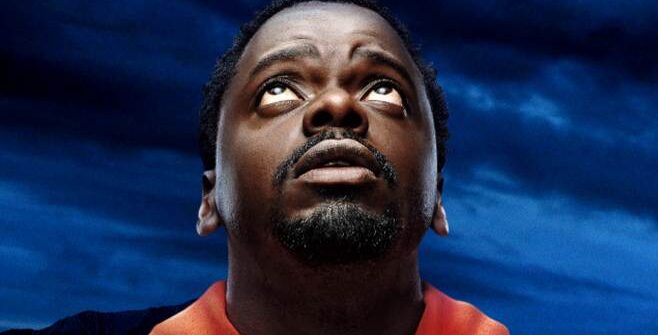
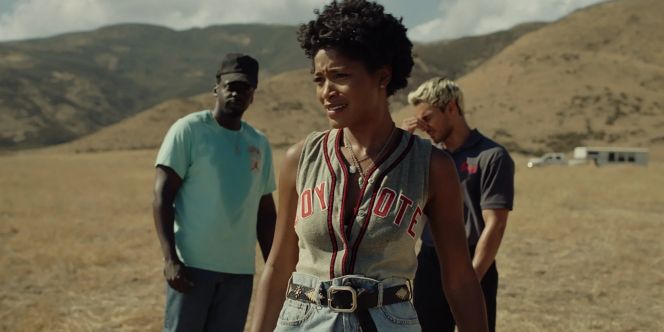
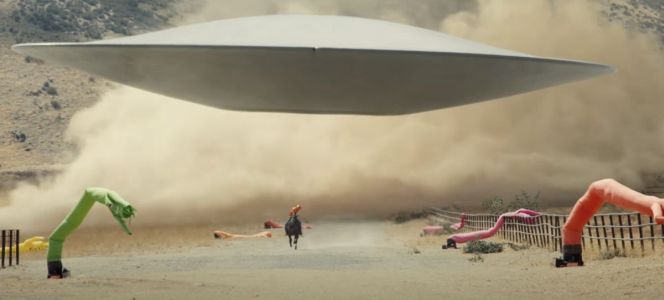
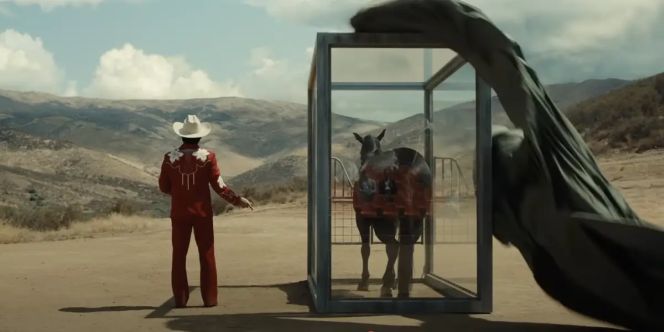






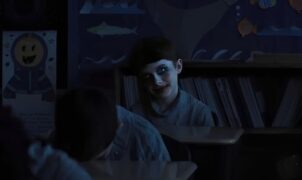



![[TGA 2025] Star Wars: Galactic Racer Focuses on High-Stakes Podrace Runs [VIDEO]](https://thegeek.games/wp-content/uploads/2025/12/theGeek-Star-Wars-Galactic-Racer-300x365.jpg)



Leave a Reply